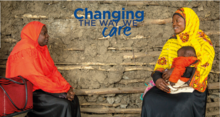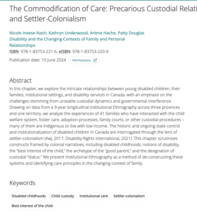Demographic Data
|
Sources: World Bank, UNICEF, UNDP HDR 2015, DHS 2011 |
Displaying 31 - 40 of 14305
During this webinar, participants will focus on identifying effective strategies that support local organizations and employ a “whole family” or “two-generation” approach to early childhood development and protection for children on the move and their families.
The Better Together conference will provide a dedicated space and time to convene, share, and learn over two and half days in Nashville. Workshops will be focused on topics related to supporting children in families with special emphasis on the complexity of the current context in Haiti. In addition to workshops, there will be plenty of time dedicated to connecting and growing relationships.
A new Financial Times investigation identified and located four Ukrainian children, who were stolen by Russia and put up for adoption on the website “Усыновите.ру”. The children were taken out of orphanages in regions occupied by the Russian army in 2022. Their ages range from 8 to 15 years old.
This brief provides an overview of Kafaalah, an alternative family care option rooted in Islamic tradition, where a sponsor (Kafiil) cares for a child (Makfuul) without severing the child's ties to their birth family. It explains how Kafaalah differs from adoption by emphasizing that the child retains their birth family name and inheritance rights.
In this session, we will be exploring the legal aspects of permanence and early permanence with our Legal Consultants Alexandra Conroy Harris, and Augusta Itua. This six part series is tailored specifically to recently qualified social workers, students and those wanting to find out more about adoption, fostering and kinship care.
In the complex work of caring for vulnerable children, we don't have to rely on guesswork or intuition to address challenges effectively. Research provides many insights that can make a practical difference in the way we care for vulnerable children. The CAFO Research Center invites you to join them to hear about some of the key findings, trends, and themes that research has to offer as it relates to care for kids.
More ‘grave violations’ committed in occupied territories and Israel than anywhere else in world, report says.
In this chapter, the authors explore the intricate relationships between young disabled children, their families, institutional settings, and disability services in Canada, with an emphasis on the challenges stemming from unstable custodial dynamics and governmental interference.
In Kenya, economic challenges often force families to place their children in residential care facilities (sometimes referred to as orphanages), leading to long-term negative impacts.
2024 Annual Meeting for Child Protection in Humanitarian Action.


